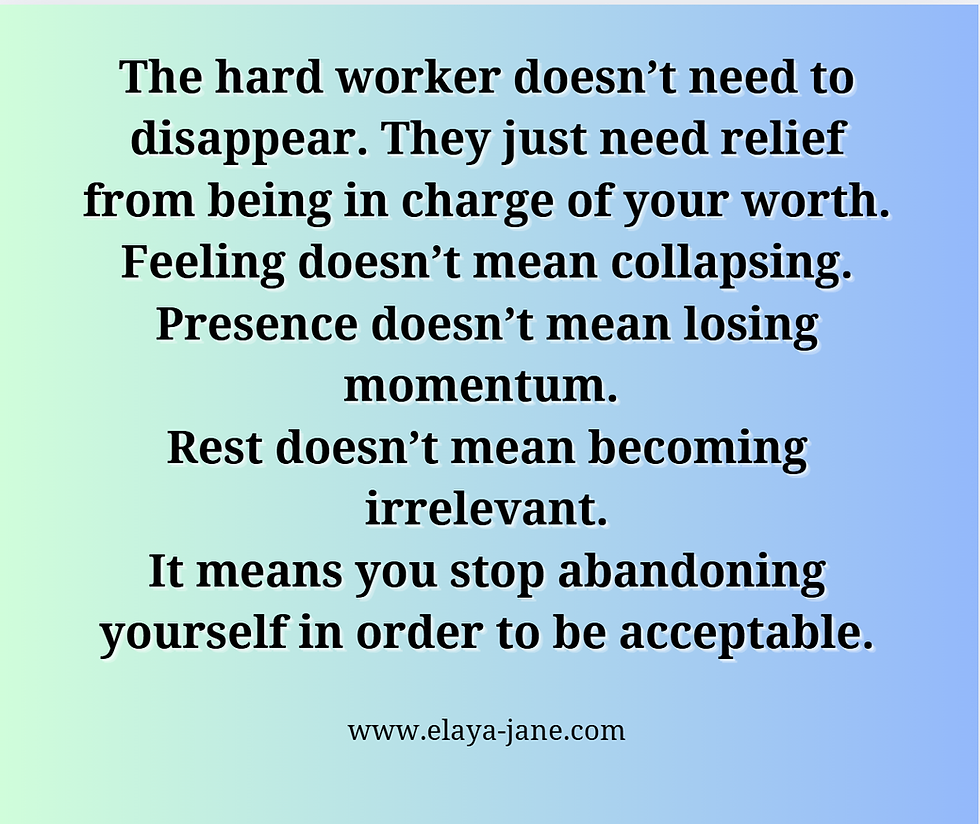From Triggered to Healed
- Jane McGarvey
- Jun 9, 2025
- 4 min read
Who Likes to Hurt Alone?
The short answer is: no one.
And yet… we do it all the time.
We retreat when we're in pain. We tell ourselves no one will understand. We stew in our hurt and try to make sense of it alone, not realising that what we really need is connection, not isolation. But here's the thing—we're often so used to protecting ourselves from further hurt that we unintentionally end up hurting others, or pushing them away.
Misery Loves Company… Especially When It’s Familiar
That old saying—misery loves company—isn’t just a throwaway line.
When we’re locked into emotional patterns from the past, misery seeks company. Not consciously. But the part of us that hasn’t healed yet feels safer when others are hurting too.
We lash out.
We blame.
We manipulate.
We withdraw.
We keep score.
Not because we’re bad people. But because we’re hurting and haven’t yet learned a healthier way to share that pain..
Sometimes it’s a desperate cry for attention: See me! Hear me! Feel what I’m feeling!
Other times it’s more subtle, a pattern of power play learned in childhood or previous relationships: if I feel out of control inside, maybe controlling you will bring me peace.
But it never does. Not really.
It just keeps the cycle going. Emotional upheavals become the norm, and before we know it, we’re addicted to the drama. The nervous system wires itself for chaos. Peace feels foreign. Safety feels… boring.

What Does It Mean to Be "Triggered"?
Being triggered means an old emotional wound has been activated. The situation may be happening in the present, but the reaction is coming from the past. It’s like a switch being flipped—suddenly we feel five, or fifteen, or twenty-five again, responding to something that feels eerily familiar, even if we can’t put our finger on why.
Physically, it might feel like:
Tightness in the chest or gut
A lump in the throat
Heat rising through the body
An overwhelming need to defend, argue, or escape
And emotionally, it can feel like:
Deep shame or anger
A sense of rejection
Panic or helplessness
A sudden belief that we are “not good enough,” “too much,” or “unlovable”
Here’s an example: If I walk up to you and say, “Hey, you’re ugly,” you’ll likely have one of two reactions. If you believe, even unconsciously, that you are ugly, the comment will sting. You’ll feel hurt, angry, or ashamed. But if you don’t hold that belief, you might think, Wow, I wonder what’s going on for this person to say that. You’ll likely feel empathy—not pain. You’ll see them, not turn inward to question you.
Don't Shoot the Messenger
We often say we want growth, but when someone unknowingly (or even clumsily) presses on an old wound, we react like they’re the enemy. But what if we could see the trigger not as an attack, but as an opportunity?
What if we could—dare I say—thank the person who triggered us?
Because that moment is a portal.
A mirror.
An invitation to meet a part of ourselves we’ve been avoiding.
Instead of shooting the messenger, we could pause and reflect:
What belief just got activated in me?
Where did that belief come from?
Is it still true?
Can I offer compassion to myself… and maybe even to them?
How to Reach Out in a Healthy Way When You’re Feeling Triggered
Reaching out when you’re hurting takes courage. Especially if your default has been to lash out, shut down, or spiral in solitude. But connection is where healing happens.
Here are a few ways to reach out with care:
Pause and Breathe Before Reacting
Even one deep breath can change the trajectory. It signals to your nervous system that you are safe now, even if something old got stirred up.
Name What’s Happening
“I feel really triggered right now, and I want to work through it before I say something I regret. ”Naming it can diffuse the intensity and create space for clarity.
Own Your Feelings Without Blame
Use “I” statements: “I felt really unseen when that happened,” rather than “You always ignore me.”It keeps the focus on your inner world, rather than putting the other person on trial.
Ask for What You Need
“Can we take a break and come back to this later?” “I need a little reassurance right now.” “Can you just hold space for me while I work this through?”
Reflect Later With Gratitude
If someone helped surface an old wound—even if it was messy—you might say later, “Hey, that conversation brought up a lot for me. But I realise now it wasn’t about you. Thanks for hanging in there.”
Healing Requires Conscious Practice
If we spend too many years in relationships that revolve around power plays, trauma bonds, and scorekeeping, we start to confuse emotional chaos with emotional connection. We become addicted to the rollercoaster. And when a safe, steady relationship shows up, our nervous system doesn’t know what to do with it. We might label it boring—but often, it’s just unfamiliar. That’s not boredom, that’s peace knocking on the door, asking if it’s finally safe to come in.
Final Thoughts
No one likes to hurt alone. But healing doesn’t always look like hiding in silence or projecting our pain. It looks like choosing connection over protection. Curiosity over defensiveness. Growth over patterns.
So the next time you're triggered, try this:
Pause.
Breathe.
Get curious.
Thank the trigger for pointing the way.
And reach out—because someone out there doesn’t want you to hurt alone either.



Comments